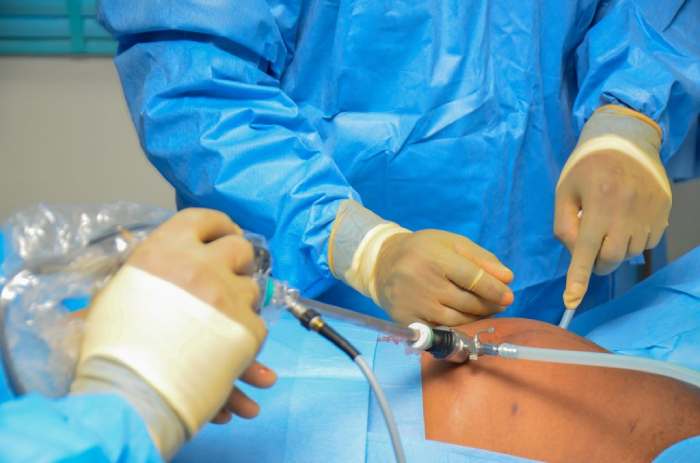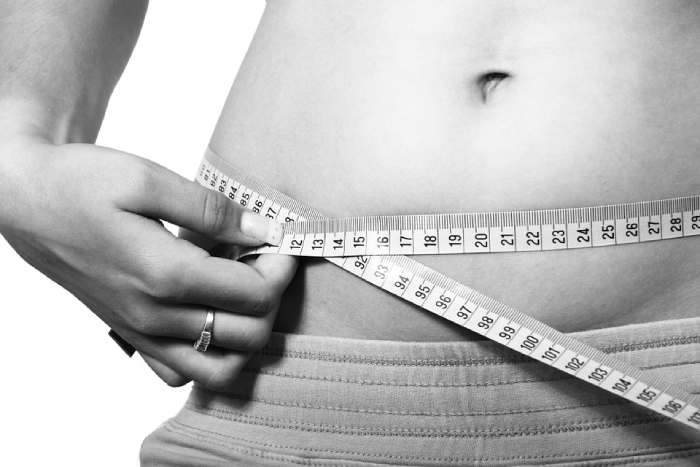You may have noticed weight loss after a hysterectomy, like a leaf falling from a tree. You’re not alone. This is a common yet puzzling experience for many women post-surgery.
A complex interplay between hormonal shifts, lifestyle changes following the procedure, and psychological factors led to this unexpected weight loss. Understanding these factors can help you navigate this new phase of your life more easily and confidently.
After the hysterectomy, Let’s unravel the mystery behind your weight loss.
Contents
Hysterectomy and Body Changes: Connection Between Surgery and Weight
After going through a hysterectomy, you might notice significant changes in your body, including unexpected weight loss. This can result from the surgery recovery process and its impact on metabolism. Your body is working overtime to heal, burning more calories than usual.

Additionally, your diet may change post-surgery; you mightn’t feel like eating as much, further contributing to weight loss. It’s important to understand that this is a common, yet temporary, side effect of the procedure.
The Role of Hormonal Shifts:
Your body’s hormonal balance also significantly affects your post-hysterectomy weight changes.
The menopause onset, often triggered by hysterectomy, leads to an estrogen deficiency, which may cause weight loss. Estrogen, a hormone that helps regulate weight, decreases dramatically after a hysterectomy.
This decline can speed up your metabolism, causing you to burn calories faster and, thus, lose weight. It’s also worth noting that a reduced estrogen level can make you feel full more quickly, reducing your food intake and leading to weight loss.
The hormonal shifts after a hysterectomy might alter your body’s fat distribution, making you lose weight in certain areas.
Impact of Post-Surgery Lifestyle Changes:
In the wake of these hormonal shifts, lifestyle changes you make following surgery can significantly influence your weight loss journey. Dietary adjustments are a key factor.
You might need to reduce calorie intake or increase the consumption of protein-rich foods to maintain muscle mass. It’s not just about what you eat, but also how you eat. Smaller, frequent meals can help manage metabolism and prevent overeating.
Your exercise regimen also plays a crucial role. It would be best if you didn’t dive right into intense workouts, but gradually incorporating physical activity is beneficial. Start with light exercises like walking and gradually move to strength training.
It’s important to understand that these changes aren’t easy but worthwhile. Remember, you’re not alone in this journey.
Psychological Factors and Weight Loss:
Navigating through the physical changes post-hysterectomy, you may also find yourself grappling with psychological factors that can significantly affect your weight loss.
Mental health plays a crucial role in your weight management journey. Stress, anxiety, and depression can lead to changes in appetite and metabolism, often causing weight loss.
Focusing on your physical recovery, stress management, and emotional health is important. Here’s a simple table to help you understand how to manage these factors:
| Psychological Factor | Impact on Weight | Management Strategy |
|---|---|---|
| Stress | Increases cortisol, leading to weight changes | Regular exercise, deep breathing |
| Anxiety | Mindfulness, counseling | Mindfulness, counselling |
| Depression | Can lead to weight gain or loss | Therapy, support groups |
Maintaining a Healthy Weight After Hysterectomy:
After a hysterectomy, you must maintain a healthy weight to ensure optimal recovery and long-term health. Dietary adjustments and a proper exercise regimen can help you achieve this.
Start by incorporating nutrient-rich foods into your meals, like lean proteins, leafy greens, and whole grains. Limit processed foods and sugars, which can lead to weight gain.

As for exercising, it’s important to ease in gradually. Start with light activities, like walking or swimming. As you regain strength, you can gradually add more strenuous exercises.
Remember, it’s not only about weight loss but also about maintaining a balanced, healthy lifestyle. Always consult with your doctor before starting any new diet or exercise program.
It’s your journey; let’s make it a healthy one.
Frequently Asked Questions:
Potential complications after a hysterectomy include hormonal changes affecting your metabolism and appetite. Emotional impact, like stress or depression, may also lead to weight loss. It’s important to discuss any concerns with your doctor.
Like a rollercoaster ride, your body’s hormonal changes post-hysterectomy can kickstart weight loss. It’s unpredictable when it’ll start, but it’s often linked to the emotional impact of the surgery, which can affect your appetite.
Yes, your medication after a hysterectomy can lead to weight loss. It’s due to hormonal impact or emotional stress. You’re adjusting to a new normal, and your body’s reacting. It’s natural and expected.
Yes, other medical conditions can contribute to weight loss post-hysterectomy. Hormonal changes might alter your metabolism, while the emotional impact could affect your eating habits. It’s crucial to discuss this with your doctor.
Your hysterectomy can trigger hormonal changes, affecting digestion and nutrient absorption potentially leading to weight loss. The psychological impact might also alter your eating habits, contributing to your weight fluctuation.
Conclusion:
It’s not just you; many women experience weight changes after a hysterectomy. The hormonal shifts, lifestyle changes, and emotional impact can all play a role.
Remember, your health is paramount. You can maintain a healthy weight with a balanced diet and regular exercise. It’s a journey, not a sprint.
Let’s weather this storm together because there’s a rainbow after every storm. Embrace these changes; you’re not alone or stronger than you think.

Santhan, known to many as Linda, combines her personal training expertise with exceptional motivational coaching skills. Her articles are not just informative but also incredibly inspiring, encouraging readers to take action and pursue their fitness goals. Linda’s unique approach to writing integrates practical fitness guidance with motivational elements, making her content both useful and uplifting.
